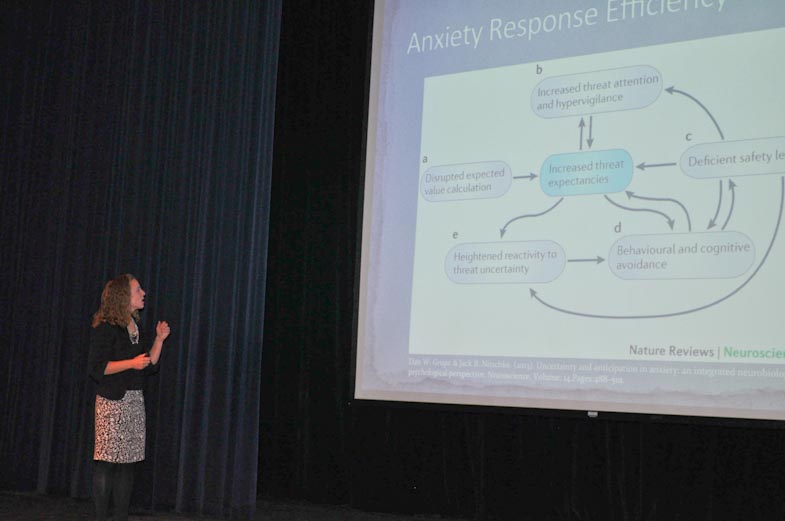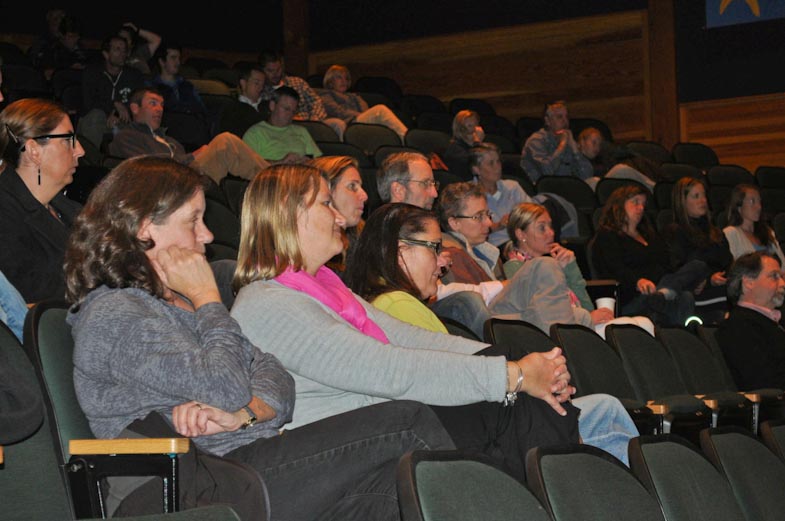Tuesday evening, Proctor faculty and staff had the privilege of hearing Dr. Angela Currie from NESCA (Neuropsychology and Education Services for Children and Adolescents) speak about anxiety levels in teenagers today and the impact those increased levels of anxiousness have on the learning process.


Dr. Currie presented fascinating statistics on the number of adolescents who have dealt with anxiety at some point in their lives (15%-20%) compared to the percentage of those who have received some sort of treatment for that anxiety (only 18% of all individuals with symptoms). We know we are an anxious society as competition for college, jobs, and identities dominate our students thoughts. Dr. Currie discussed the role over-scheduling plays in increased levels of anxiety, as well as shifting societal norms for adolescents; peer pressure to achieve, fit in, and successfully balance academics with a social life.
From her observations, boarding school students are in a unique position. Their lives are simplified to some degree as their activities, school, and social life are all in one place. However, living, attending class, and hanging out with your friends all in one place brings about its own challenges as well. Anxiety is a learned behavior in humans, and in fact we can get ‘better’ at being anxious with practice. As we learn this behavior, we more quickly recognize anxiety indicators in our lives and expedite the process of becoming anxious. When combined with the toxic triad of executive functioning, emotional control, and attentional control that many students face, anxiety levels can escalate in a hurry within the adolescent population.
As Dr. Currie discussed the impact of anxiety on the learning process, faculty began to realize that while many of our students (and us!) face real challenges learning to manage anxiety, Proctor is perfectly positioned to coach students through those obstacles.


Adolescents naturally operate in a place of uncertainty regarding their independence. They crave more of it, and are granted a tremendous amount of independence at Proctor. However, they are still deeply dependent on the educational system around them. What Proctor’s educational model is able to do is teach students that being independent and depending on the support system around you are not mutually exclusive. In fact, they are quite the opposite!


Our changing culture may be amplified in a boarding school setting, but at Proctor, students are able to learn how to trust their teachers and peers. When a student truly gains independence in their learning, they become self-advocates who attend extra help sessions, seek out teachers with questions, study with their peers, and understand themselves as learners.


Chris Waddell shared a similar message with the community last weekend. As his attempt to become the first paraplegic to summit Mt. Kilimanjaro unassisted was foiled by an impassable rock outcropping, Waddell felt as though he had failed. Only later did he realize no one ever can summit their greatest challenge unassisted. We all need support. We all need coaches to help us along the way. We all need a system around us that encourages us to stretch ourselves, to embrace new challenges, and to better understand ourselves as learners. It is when we can trust that support around us that we truly become independent, regardless of whether we are adolescents or adults.








